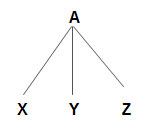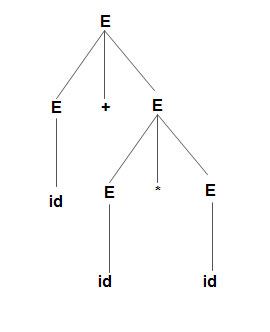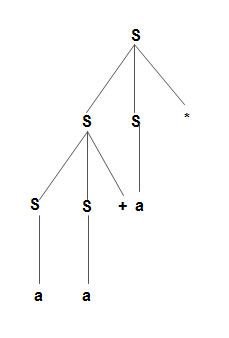• Parse tree is a hierarchical structure which represents the derivation of the grammar to yield input strings.
• Root node of parse tree has the start symbol of the given grammar from where the derivation proceeds.
• Leaves of parse tree represent terminals.
• Each interior node represents productions of grammar.
• If A -> xyz is a production, then the parse tree will have A as interior node whose children are x, y and z from its left to right.

Construct parse tree for E –> E + E I E * E I id

Construct parse tree for s –> SS* I ss+ I a

Yield of Parse Tree
Leaf nodes of parse tree are concatenated from left to right to form the input string derived from a grammar which is called yield of parse tree.
Figure represents the parse tree for the string id+ id* id.
The string id + id * id, is the yield of parse tree depicted in Fig.
Figure represents the parse tree for the string aa +a*.
The string aa + a*, is the yield of parse tree depicted in Fig.
 Dinesh Thakur holds an B.C.A, MCDBA, MCSD certifications. Dinesh authors the hugely popular
Dinesh Thakur holds an B.C.A, MCDBA, MCSD certifications. Dinesh authors the hugely popular